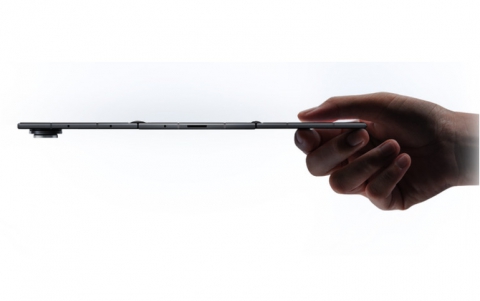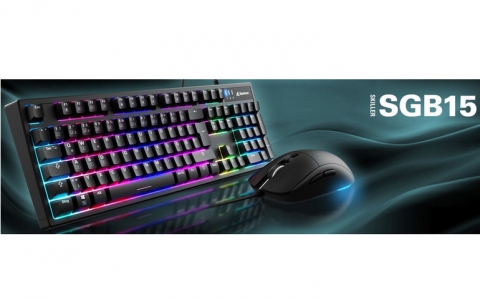
Microsoft Eyes Online Advertising
Microsoft unveiled last Friday the the Microsoft adCenter Incubation Lab (adLab) during its adCenter Demo Fest. The company plans to use the new platform for selling online advertising alongside regular search results , hoping to compete with Google and Yahoo.
Microsoft has been testing its new platform for selling online advertising, The new platform, called adCenter, will launch in June. Right now, the company said, 25 percent of the sponsored links that accompany search results on the MSN Search site are from adCenter, but that will increase to 100 percent by the time the company's fiscal year ends in June.
Microsoft currently outsources the job of providing sponsored links to a Yahoo subsidiary, Overture Services, although the current contract will expire in June.
The move to bring it in-house is important because competitors such as Google make most of their money selling ads placed next to their search results.
The launch is also a big step toward Microsoft's broader adCenter ambitions, which executives say will eventually be a system for offering companies ways to buy online advertising space on various platforms, from its blogging sites to its new Office Live system for offering business software and services online.
For that wider-scoped effort, Microsoft's adCenter's R and D department is completing a set of tools that will provide detailed demographic information, so advertisers can more accurately target their ads to the proper audiance. Many of those tools are expected to be available in the next 6 to 12 months, said Tarek Najm, adCenter's general manager.
Much of the work is being done by Microsoft's adCenter Incubation Lab (adLab), which was also announced Thursday.
AdLab is a joint effort between the Redmond based center and one in China. Najm said it was the first time that a Microsoft product group is working so closely with one of Microsoft's research labs, which are typically staffed by researchers who study futuristic-types of technology.
Najm said his group wanted to partner with the Chinese researchers because of their expertise in fields that will allow the technical and computational backbone for getting advertising to the right potential consumers.
The Chinese and U.S. researchers on Thursday previewed a multitude of those tools at its Redmond campus.
Eventually, they want to give advertisers a better sense of the age, gender and other traits of people who are viewing certain information online. This will be a huge benefit for marketing. Microsoft said it will not be using personally identifiable information to target the ads.
adLab's top-notch group of more than 50 researchers will develop advertising solutions that connect marketers with consumers in more relevant, innovative ways unseen in the industry before now. Today at the adCenter Demo Fest on the Microsoft campus, the researchers gathered to present prototypes of more than 15 of the approximately 40 advertising technologies they are currently working on for long-term implementation, including online advertising solutions, video opportunities, and television and mobile-based advertising products.
These prototypes hold the promise to change online advertising dramatically in areas such as paid search, behavioral targeting and contextual advertising. Also shown were projects addressing areas of incubation in their earliest stages of investigation, such as ad bar-code readers, social network mining, and video and large-display ads.
One of the innovative technologies highlighted at the event was video hyperlink ads, which can detect product items displayed on a television screen during a show or commercial, allowing consumers to zoom into products featured on the television screen and click through to detailed product descriptions and information on where the products can be bought.
Microsoft currently outsources the job of providing sponsored links to a Yahoo subsidiary, Overture Services, although the current contract will expire in June.
The move to bring it in-house is important because competitors such as Google make most of their money selling ads placed next to their search results.
The launch is also a big step toward Microsoft's broader adCenter ambitions, which executives say will eventually be a system for offering companies ways to buy online advertising space on various platforms, from its blogging sites to its new Office Live system for offering business software and services online.
For that wider-scoped effort, Microsoft's adCenter's R and D department is completing a set of tools that will provide detailed demographic information, so advertisers can more accurately target their ads to the proper audiance. Many of those tools are expected to be available in the next 6 to 12 months, said Tarek Najm, adCenter's general manager.
Much of the work is being done by Microsoft's adCenter Incubation Lab (adLab), which was also announced Thursday.
AdLab is a joint effort between the Redmond based center and one in China. Najm said it was the first time that a Microsoft product group is working so closely with one of Microsoft's research labs, which are typically staffed by researchers who study futuristic-types of technology.
Najm said his group wanted to partner with the Chinese researchers because of their expertise in fields that will allow the technical and computational backbone for getting advertising to the right potential consumers.
The Chinese and U.S. researchers on Thursday previewed a multitude of those tools at its Redmond campus.
Eventually, they want to give advertisers a better sense of the age, gender and other traits of people who are viewing certain information online. This will be a huge benefit for marketing. Microsoft said it will not be using personally identifiable information to target the ads.
adLab's top-notch group of more than 50 researchers will develop advertising solutions that connect marketers with consumers in more relevant, innovative ways unseen in the industry before now. Today at the adCenter Demo Fest on the Microsoft campus, the researchers gathered to present prototypes of more than 15 of the approximately 40 advertising technologies they are currently working on for long-term implementation, including online advertising solutions, video opportunities, and television and mobile-based advertising products.
These prototypes hold the promise to change online advertising dramatically in areas such as paid search, behavioral targeting and contextual advertising. Also shown were projects addressing areas of incubation in their earliest stages of investigation, such as ad bar-code readers, social network mining, and video and large-display ads.
One of the innovative technologies highlighted at the event was video hyperlink ads, which can detect product items displayed on a television screen during a show or commercial, allowing consumers to zoom into products featured on the television screen and click through to detailed product descriptions and information on where the products can be bought.





















